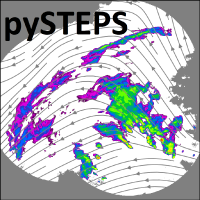pysteps.verification.interface.get_method
pysteps.verification.interface.get_method¶
- pysteps.verification.interface.get_method(name, type='deterministic')¶
Return a callable function for the method corresponding to the given verification score.
- Parameters
- namestr
Name of the verification method. The available options are:
type: deterministic
Name
Description
ACC
accuracy (proportion correct)
BIAS
frequency bias
CSI
critical success index (threat score)
F1
the harmonic mean of precision and sensitivity
FA
false alarm rate (prob. of false detection, fall-out, false positive rate)
FAR
false alarm ratio (false discovery rate)
GSS
Gilbert skill score (equitable threat score)
HK
Hanssen-Kuipers discriminant (Pierce skill score)
HSS
Heidke skill score
MCC
Matthews correlation coefficient
POD
probability of detection (hit rate, sensitivity, recall, true positive rate)
SEDI
symmetric extremal dependency index
beta1
linear regression slope (type 1 conditional bias)
beta2
linear regression slope (type 2 conditional bias)
corr_p
pearson’s correleation coefficien (linear correlation)
corr_s*
spearman’s correlation coefficient (rank correlation)
DRMSE
debiased root mean squared error
MAE
mean absolute error of residuals
ME
mean error or bias of residuals
MSE
mean squared error
NMSE
normalized mean squared error
RMSE
root mean squared error
RV
reduction of variance (Brier Score, Nash-Sutcliffe Efficiency)
scatter*
half the distance between the 16% and 84% percentiles of the weighted cumulative error distribution, where error = dB(pred/obs), as in Germann et al. (2006)
binary_mse
binary MSE
FSS
fractions skill score
SAL
Structure-Amplitude-Location score
type: ensemble
Name
Description
ens_skill
mean ensemble skill
ens_spread
mean ensemble spread
rankhist
rank histogram
type: probabilistic
Name
Description
CRPS
continuous ranked probability score
reldiag
reliability diagram
ROC
ROC curve
- type{‘deterministic’, ‘ensemble’, ‘probabilistic’}, optional
Type of the verification method.
Notes
Multiplicative scores can be computed by passing log-tranformed values. Note that “scatter” is the only score that will be computed in dB units of the multiplicative error, i.e.: 10*log10(pred/obs).
beta1 measures the degree of conditional bias of the observations given the forecasts (type 1).
beta2 measures the degree of conditional bias of the forecasts given the observations (type 2).
The normalized MSE is computed as NMSE = E[(pred - obs)^2]/E[(pred + obs)^2].
The debiased RMSE is computed as DRMSE = sqrt(RMSE - ME^2).
The reduction of variance score is computed as RV = 1 - MSE/Var(obs).
Score names denoted by * can only be computed offline, meaning that the these cannot be computed using _init, _accum and _compute methods of this module.
References
Germann, U. , Galli, G. , Boscacci, M. and Bolliger, M. (2006), Radar precipitation measurement in a mountainous region. Q.J.R. Meteorol. Soc., 132: 1669-1692. doi:10.1256/qj.05.190
Potts, J. (2012), Chapter 2 - Basic concepts. Forecast verification: a practitioner’s guide in atmospheric sciences, I. T. Jolliffe, and D. B. Stephenson, Eds., Wiley-Blackwell, 11–29.
